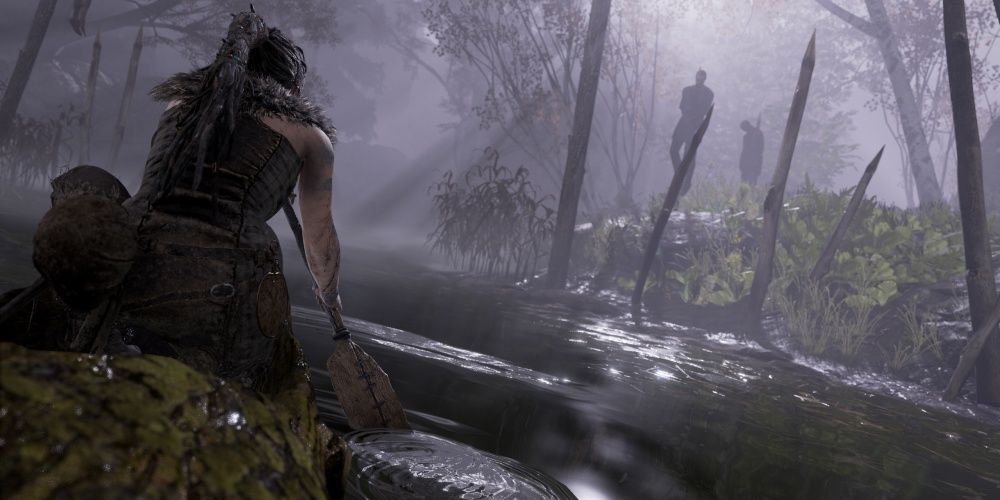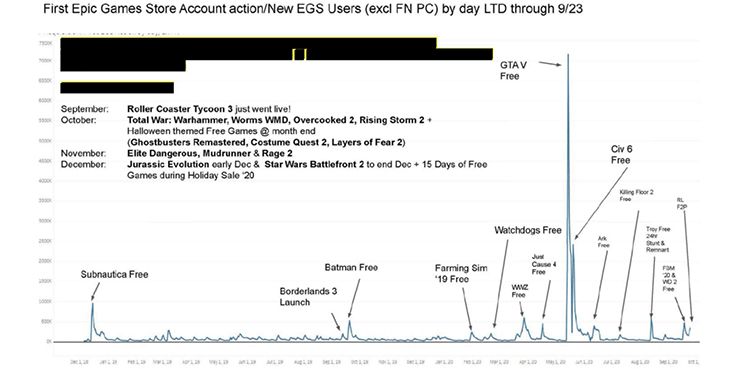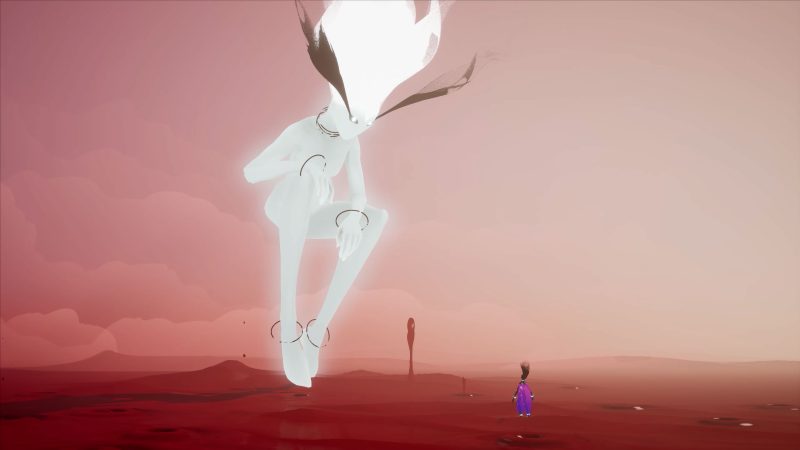
Video games have always been my favourite medium to experience stories. Not books, not films, not anything else – video games are head and shoulders above the competition because of their interactivity. By placing you within the story and making you an active participant, they create a bond between you and the narrative that other mediums come close to but never fully realise. Hellblade: Seuna’s Sacrifice perfectly encapsulates the way video games can tell stories in ways other media could only dream of.
I’m not talking about the plot or the ending of Hellblade here – what’s important is how the game tells its story. Senua is a Celtic exile who ventures to the misty Norse realm of Helheim, the place where the dead reside. She’s on a quest to free the soul of her dead lover, Dillion, and accompanying her are several voices. The game’s developer, Ninja Theory, hired and consulted mental health specialists and people with psychosis to accurately portray it within Hellblade. They did a great job, as these voices create doubt, not only for Senua, but for you. They make you question every decision and choice you make, trying to wrack you with as much anxiety and terror as they instill in Senua.
RELATED: Psychonauts 2’s Invincibility Mode Proves That How You Beat The Game Doesn't Matter
An unreliable narrator is nothing new, books and films have been using them for ages: Fight Club, The Girl on the Train, American Psycho – now that I think about it, those are all books and films. All these films and books make you doubt what you’ve seen or read, but none of them make you doubt what you’ve done. Hellblade got under my skin and made me question myself more than any other game before it.

I’ve written about how well the voices are implemented in combat, so I won’t dive too deeply into that here. But the short version is, sometimes they help, and sometimes they hinder, creating doubt about their intentions and your level of skill. Senua is clearly an incredibly talented warrior. She brutally leaps and slices her way through foes, so your confidence grows as you play and it becomes easier to dismiss the nastier voices.
What doesn’t get easier is the déjà vu. Nothing looks the same on the way back as it did during the initial journey, so backtracking after defeating the first boss is a very confusing experience. The game is fairly linear, so getting to the boss is simple: kill everything in your path and walk towards whatever is being guarded. The way back is far more daunting. Somehow the lack of enemies, and therefore the lack of affirmation you’re going the right way, creates this feeling of unease that is greatly pronounced by the mocking voices.

So far, this feeling has been strongest in the realm of Valravn, God of Illusion. Obviously, in a game about psychosis, a level dealing with illusions is going to be exceptionally nerve wracking. Every shadow in the forest makes you jump, and the level design is perfect. The blocking of the trees acts as a cue to warp everything. You think you’re looking at Valravn, when in reality you’re just looking at a raven headed scarecrow. A film can pull off the same trick, but it won’t let you linger because you’re at the mercy of the camera. In Hellblade, you control what you look at, so you’re free to poke around. Being able to confirm to yourself, “Nope, that is definitely not a raven-God, just a scarecrow” somehow makes the initial doubt even more insidious.
The puzzles in Valravn’s level require you to walk through gates that change the lay of the land. They can make bridges appear, walls crumble, and staircases rise up from ruins. This has the knock on effect of making it almost impossible to tell if you’ve been somewhere before. You never know if you’re walking in circles or going somewhere new, and it’s equal parts frustrating and horrifying. It’s a perfect metaphor for mental health struggles – a seemingly never ending cycle of feeling lost and trapped, frustrated that you’ve been here before but then doubtful if you actually have. You feel stuck in the same place for so long, only to find a way out just when you’ve all but given up hope. Sometimes that hope is in a place you’ve already been dozens of times, sometimes it’s in an entirely new place. That’s been my experience with mental health issues anyway.

While films can create a wonderful sense of place, and books can get inside your heart, only games can make you feel as though you have truly done something, been somewhere. The swirling voices in your headphones, the unfamiliar ground you’ve already walked upon, and the illusions that add a duality to everything truly place you in the shoes of Senua like nothing else can. Because you walk as her, not just in her shoes, but as her digital avatar, you’re pulled deep into the story, and deeper into her mind. Your mind melds with hers, and the two become one and the same. I own every action I take in a video game – rather than being an observer of someone else’s story, video games let me live out my own.
Next: Nintendo Consistently Has The Best Water




